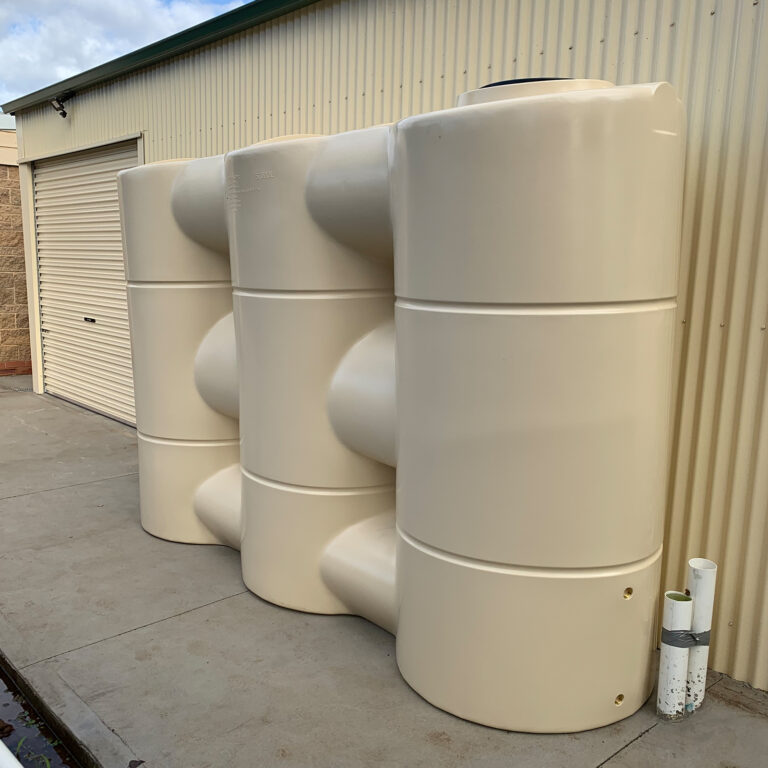Slimline Water Tanks: Space-Saving Solutions for Tiny Features
Discover the Relevance of Rainwater Containers for Sustainable Water Preservation Initiatives
In the realm of sustainable water preservation, the use of rainwater storage tanks stands as a pivotal method that merits better examination. By exploring the multifaceted benefits of rain harvesting, a profound understanding of its possible impact on water preservation initiatives emerges.
Benefits of Rain Containers
Utilizing rainwater storage tanks uses a functional remedy for lasting water management by harnessing nature's sources effectively. Rain storage tanks collect and store rain that drops on roofs, which can after that be made use of for various non-potable purposes, such as irrigation, washing clothes, purging toilets, and also for some drinkable uses with appropriate therapy. Among the crucial advantages of rainwater tanks is the reduction of demand on keys supply of water, especially during dry seasons or droughts.
Ecological Impact of Rain Harvesting
Rain harvesting through the usage of storage tanks offers a sustainable water management practice with favorable environmental ramifications. By capturing rain, this method helps reduce the need for mains water supply, thus easing the problem on water treatment plants and decreasing power usage associated with water circulation.
Moreover, rain harvesting promotes water preservation and lowers reliance on finite water resources. Generally, the ecological influence of rain harvesting underscores its relevance in progressing lasting water management methods.
Rain Tanks for Residential Usage
Having actually highlighted the ecological benefits of rainwater harvesting, the focus now changes to the practical application of rainwater storage tanks for property water preservation (Slimline water tanks). Rainwater storage tanks play a critical duty in residential water management by capturing and storing rainwater that drops on the roof covering of a house. These tanks can vary in size and product, supplying property owners versatility in picking a system that fits their demands
Among the key advantages of utilizing rain tanks in domestic settings is the reduction in dependence on keys supply of water. By accumulating rain for non-potable usages such as sprinkling yards, cleaning cars, purging toilets, and doing laundry, homes can significantly decrease their overall water intake and utility visite site bills. Additionally, rainwater is typically free from the chemicals found in cured water, making it a more suitable selection for specific home jobs.
Furthermore, rainwater harvesting systems can assist reduce city flooding and disintegration by decreasing stormwater runoff. By recording rain in tanks, much less water flows right into storm drains pipes, reducing the strain on metropolitan drain systems during heavy rains. Generally, integrating rainwater containers into residential buildings adds to lasting water conservation efforts and advertises self-sufficiency in water administration.

Economic Advantages of Making Use Of Rainwater Containers
The economic advantages related to the execution of rain storage tanks in domestic and business setups are substantial and multifaceted. One of the key financial advantages of using rainwater storage tanks is the decrease in water expenses. By gathering and saving rainwater for different non-potable uses such as irrigation, commode flushing, and washing, residential property proprietors can substantially lower their dependence on keys water, resulting in significant cost financial savings gradually.
Moreover, the setup of rain tanks can enhance building worth. In today's environmentally mindful market, buildings equipped with lasting attributes like rainwater harvesting systems are commonly much more eye-catching to potential customers, regulating higher asking price and faster sale times.
Additionally, rainwater containers can assist companies and home owners minimize the effect of water limitations and changing water rates. By having a supplementary water source during droughts or durations like this of raised water prices, people and organizations can much better manage their water-related costs and preserve functional continuity. In general, the financial advantages of making use of rain containers make them a smart investment for long-term savings and sustainability.
Area Sustainability Via Rain Collection
Taking into consideration the more comprehensive effect past individual benefits, the integration of rain collection systems in neighborhoods plays an important duty in cultivating ecological sustainability and source administration. Community sustainability via rainwater collection initiatives not just aids in reducing the stress on municipal water sources but additionally helps in next mitigating the effects of urbanization on regional water supply. By installing rain tanks in public buildings, parks, and communal spaces, communities can decrease their dependence on central water resources, causing a much more resistant water supply throughout droughts or emergency situations.
Additionally, community-level rain harvesting promotes a sense of cumulative duty in the direction of water preservation. Inevitably, area sustainability with rainwater collection not only benefits the existing generation yet likewise makes certain a much more lasting future for generations to come.

Final Thought
